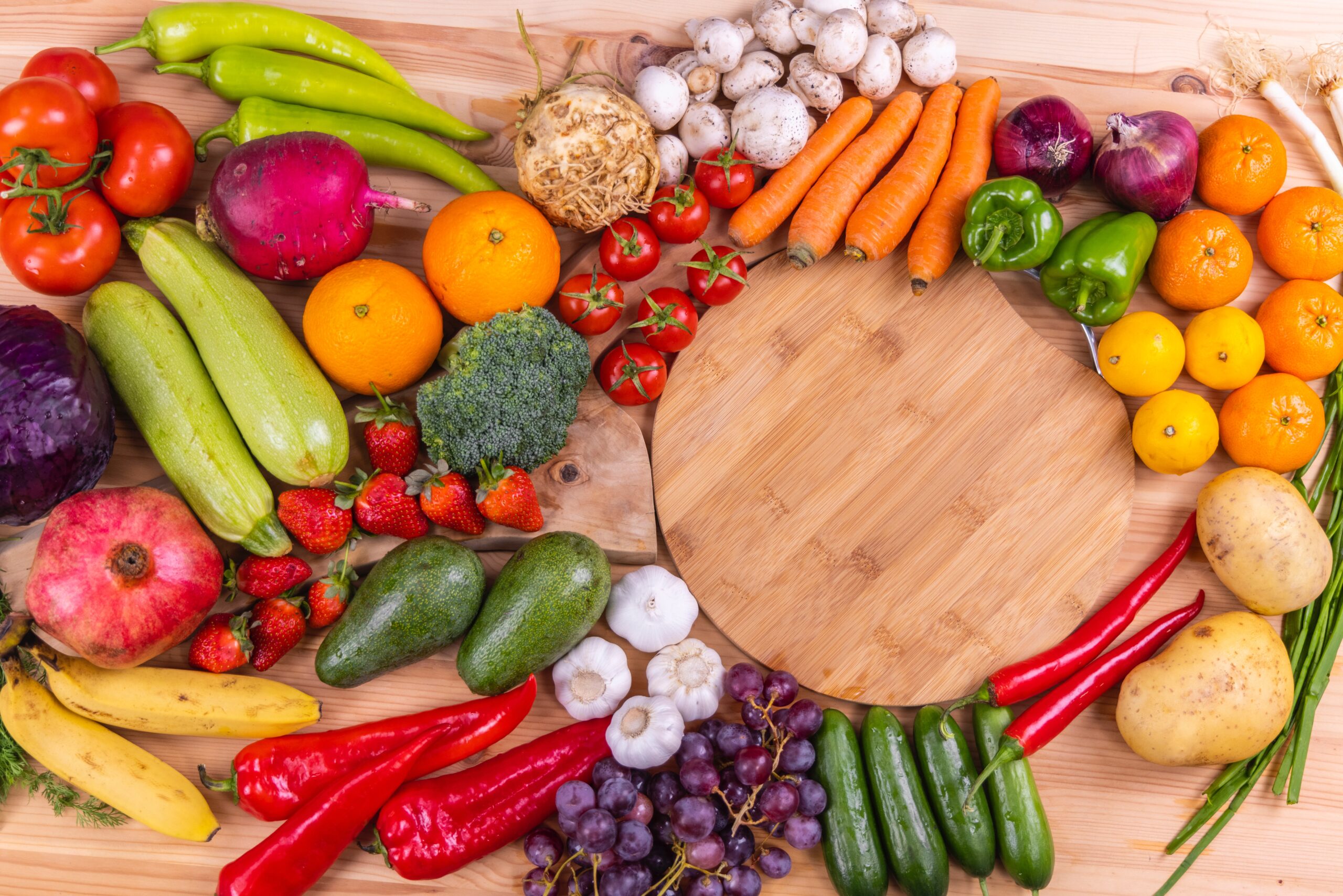A balanced diet is important to keep us healthy and productive. Here you will find helpful tips and recipes for a healthy diet.
Healthy eating tips
A healthy diet is a varied, balanced and fresh mixed diet , which should consist mainly of plant-based foods. Here you will find 13 tips for a healthy diet and why it is important.
1. Enjoy diversity
Allow variety in your food choices. The larger and more colorful the selection, the better. Here it helps to use the traffic light principle for fruit and vegetables : for example green lettuce , bananas and tomatoes.
2. Five a day
This means 2 servings of fruit and 3 servings of vegetables . A portion is always a handful. When it comes to vegetables, it is best to consider a raw component, such as lettuce. If you like, you can eat more vegetables than fruit, because vegetables do not affect the blood sugar level. Fruits and vegetables contain vitamins, minerals and fiber that the body needs.
3. Cereal products such as potatoes…
… may be on the menu every day. Predominantly choose whole grain cereal products, as they contain a lot of fiber. A high intake of fiber reduces the risk of various diet-related diseases and is important for a functioning digestion.
4. Eat animal products in moderation
You can consume milk and milk products every day. Choose the low-fat option to save calories. These provide the body with protein and calcium. You can plan fish once or twice a week. This provides valuable fatty acids that are essential for the body. Eat meat, sausages and eggs in moderation. Eat white meat rather than red, as the latter is suspected of promoting colon cancer, cardiovascular disease and type 2 diabetes.
5. Healthy fats
Fat is not bad per se. But on the contrary! The type of fat is important. Linseed oil, rapeseed oil, nuts, seeds and sea fish provide omega-3 fatty acids, so-called unsaturated fatty acids, which are particularly important for the body. Omega-6 fatty acids are also among the unsaturated fatty acids and occur e.g. B. in sunflower oil. However, these fatty acids can have an inflammatory effect and should therefore only be consumed sparingly. Also reduce saturated fats from animal products such as butter and hydrogenated fats, for example from ready-made baked goods or margarine. Fat enables the absorption of fat-soluble vitamins such as E, D, K and A.
6. Drink a lot
Drink at least 1.5 liters a day. Better 2 to 3 liters in warm weather. Prefer water and unsweetened teas. Having juice spritzers every once in a while is okay. Avoid soft drinks and light drinks because they contain a lot of sugar.
7. Eat products that are as natural as possible
Ready-made dishes often contain a large number of unnecessary ingredients. Principle: the list of ingredients should be as short as possible and most of the ingredients should be known.
8. Sugar and salt in moderation
Use sugar or foods with sugar as seldom as possible , because these cause an increased blood sugar level, which the body keeps in check with insulin. If insulin is active in the body, less fat can be broken down at the same time and weight can increase in the long term.
Instead of salt, use fresh herbs for seasoning. In general, too much salt is used in Germany, which can have a negative effect on blood pressure.
9. Hunger or appetite
Strengthen your body awareness ! Before every meal and snack, ask yourself if you’re really hungry or just want to eat. Behind the desire for something between the teeth there is usually a thirst signal from the body, which we cannot always assign as such. If it’s not thirst but a craving for sweets, it often goes away on its own if you wait a moment. By the way, you save calories in this way. Eat regularly so that cravings don’t stand a chance. Otherwise, the body tends to quickly absorb large and often high-calorie amounts so that the brain is quickly supplied with new energy.
10. Seasonality and regionality
Does your food come from the region and is it in season? Choosing regional and seasonal products shortens transport routes and thus protects the climate. Long transport routes often influence the vitamin content in the food.
11. Gentle preparation
Prepare your food at the lowest possible temperature to preserve the nutrients. Use only a little fat to save calories.
12. Enjoyment
Take your time eating! Consciously enjoy and chew longer: This way, all food is well chopped up and the intestines have less work to do. Because many intestinal problems can arise from insufficient chewing.
13. Eating without distractions
Avoid the TV and smartphone while you eat and enjoy the meal without distractions . Otherwise the body does not even notice what it is actually eating and the amounts consumed will automatically increase. Eat together with family or friends and enjoy a delicious lunch or dinner together .
Healthy alternatives for chips & co
Are you looking for alternative foods and want to swap unhealthy foods for healthier ones? See the table for some tips.
Better not
- sweets and chocolate
- sunflower oil, clarified butter
- White flour products (rolls, cakes, pasta )
- Canned fruit with sugar, compote
- Salt
- Fat sausage, e.g. B. Salami
- Red meat e.g. B. Beef
- crisps
- lemonades and juices
- Beer, wine, cocktails
Instead of this
- dried fruits and nuts
- rapeseed or linseed oil
- whole grain products
- fresh fruit
- Herbs
- Turkey breast, Kassler, vegetarian spreads
- White meat, e.g. B. Chicken
- pretzel or sesame sticks
- Water, infused water, teas, juice spritzers
- Non-alcoholic beer, fruit juice spritzer
